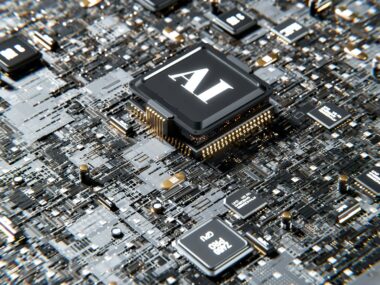Artificial Intelligence (AI) has rapidly evolved over the past few years, driving significant advancements across numerous industries. However, with great power comes great responsibility. The development and deployment of AI technologies come with a host of ethical considerations that must be addressed to ensure the beneficial and fair use of AI. This blog post aims to delve into these ethical considerations, providing insights that are valuable for tech enthusiasts, ethics advocates, and developers alike.
The Importance of AI Ethics
Defining AI Ethics
AI ethics is a set of moral principles and techniques intended to inform the development and responsible use of artificial intelligence technologies. These principles are designed to ensure that AI systems are developed and used in ways that respect human rights, promote fairness, and mitigate potential harms.
Why AI Ethics Matter
- Protecting Human Rights: AI technologies have the potential to impact fundamental human rights significantly. Ensuring that AI systems do not infringe on rights such as privacy, freedom of expression, and equality is crucial.
- Promoting Fairness: AI systems can unintentionally perpetuate biases present in their training data, leading to unfair and discriminatory outcomes. Ethical AI development aims to identify and mitigate these biases.
- Building Trust: Trust is essential for the widespread adoption of AI technologies. Transparent, ethical practices help build public confidence in AI systems.
- Preventing Harm: AI systems can cause unintended harm if not developed responsibly. Ethical considerations help identify potential risks and implement measures to mitigate them.
Machine Learning and Bias
Understanding Bias in Machine Learning
Bias in machine learning occurs when an AI system produces prejudiced results due to erroneous assumptions in its training data. Bias can manifest in various ways, including racial, gender, age, and socioeconomic biases.
Sources of Bias
- Data Collection: Biased data collection methods can lead to training datasets that do not accurately represent the real world, resulting in biased AI systems.
- Algorithm Design: The design of machine learning algorithms can inadvertently introduce biases. For example, certain algorithms may weigh specific features more heavily, leading to biased outcomes.
- Human Involvement: Human decision-making in the development process can introduce biases based on subjective judgments and cultural norms.
Mitigating Bias in AI
- Diverse Datasets: Using diverse and representative datasets can help reduce bias in AI systems. It’s essential to evaluate and curate training data to ensure it accurately reflects the population it will serve.
- Bias Detection Tools: Implementing tools and techniques to detect and measure biases in AI systems can help identify issues early in the development process.
- Inclusive Development Teams: Diverse development teams bring various perspectives and experiences, helping to identify and address potential biases in AI systems.
Responsibility in AI Development
Ethical Frameworks
Several ethical frameworks have been proposed to guide AI development, including:
- Principles for Responsible AI: These guidelines emphasize fairness, transparency, accountability, and privacy.
- The Asilomar AI Principles: Developed by the Future of Life Institute, these principles advocate for the ethical and beneficial development of AI.
- The IEEE Global Initiative on Ethics of Autonomous and Intelligent Systems: This initiative guides designing ethically aligned AI systems.
Transparency and Accountability
To foster trust and accountability, AI developers should prioritize transparency. This includes:
- Explainability: Ensuring that AI systems’ decision-making processes are understandable by humans. Explainable AI helps users and stakeholders comprehend how and why decisions are made.
- Documentation: Comprehensive documentation of AI systems, including data sources, algorithms, and decision-making criteria, enhances transparency and accountability.
- Auditing and Monitoring: Regular auditing and monitoring of AI systems can help identify and address ethical concerns throughout the development lifecycle.
Legal and Regulatory Considerations
Governments and regulatory bodies are increasingly focusing on the ethical implications of AI. Developers must stay informed about relevant laws and regulations to ensure compliance. Key areas of concern include:
- Data Privacy: Compliance with data privacy laws, such as the General Data Protection Regulation (GDPR), is essential to protect individuals’ data and privacy rights.
- Algorithmic Accountability: Regulations may require developers to demonstrate the fairness and accuracy of their algorithms, ensuring they do not produce discriminatory outcomes.
- Liability and Responsibility: Developers must consider who is liable in case of harm caused by AI systems, ensuring clear lines of responsibility and accountability.
Case Studies: Ethical Challenges and Solutions
Facial Recognition Technology
Facial recognition technology has faced significant ethical scrutiny due to concerns about privacy, bias, and surveillance. High-profile incidents of misidentification and bias have highlighted the need for ethical considerations in developing and deploying these technologies.
Solutions:
- Implementing strict data privacy measures to protect individuals’ biometric data.
- Using diverse training datasets to reduce bias in facial recognition algorithms.
- Establishing clear guidelines and regulations for the ethical use of facial recognition technology.
Autonomous Vehicles
Autonomous vehicles present ethical challenges related to safety, decision-making, and liability. Ensuring that autonomous vehicles make ethical decisions in life-and-death situations is a complex ethical dilemma.
Solutions:
- Developing ethical frameworks for decision-making in autonomous vehicles, prioritizing safety and minimizing harm.
- Implementing robust testing and validation processes to ensure the safety and reliability of autonomous vehicles.
- Establishing clear regulations and liability frameworks to address ethical and legal concerns.
Conclusion
As AI continues to evolve, ethical considerations must remain at the forefront of its development and deployment. By prioritizing fairness, transparency, accountability, and privacy, we can harness the potential of AI while minimizing its risks. Developers, tech enthusiasts, and ethics advocates all have a role in shaping the future of AI to ensure it serves the greater good.
Ethical AI is not just a guideline; it’s a necessity. Let’s work together to build a future where technology and ethics go hand in hand.
For more insights and updates on AI ethics, follow our blog and join the conversation. Together, we can create a responsible and ethical AI landscape.






